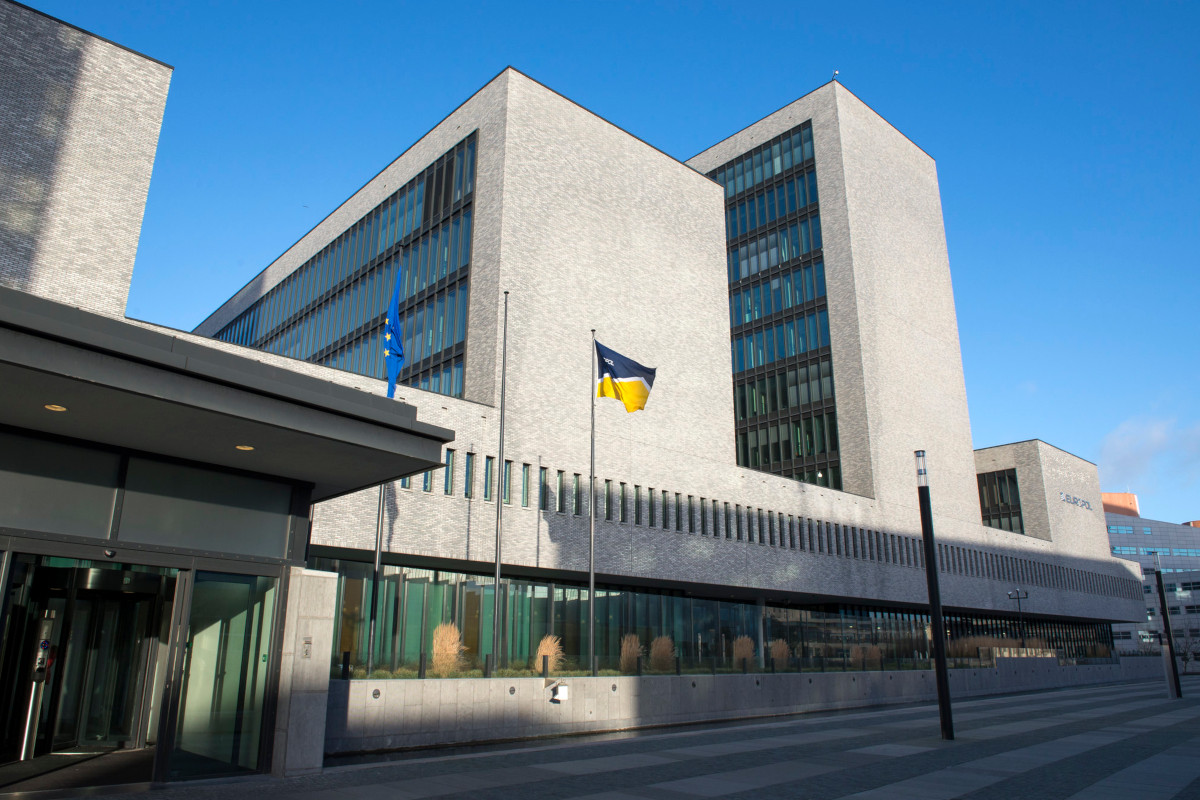News
Launched in 1999 and updated regularly, Statewatch News includes our own reporting and writing as well as articles, announcements, documents and analyses from elsewhere on civil liberties, EU policies and state practices. You can receive updates in your inbox by signing up to our mailing list, or use our RSS feed to get instant alerts.

Interviews: Transnational action in support of upcoming referendum on Switzerland's funding for Frontex
To find out more about the Abolish Frontex! network and the upcoming Swiss referendum on whether the country should increase its financial contributions to the EU border agency, we spoke to Luisa Izuzquiza of Frag den Staat and Abolish Frontex! and to Lorenz Nagel, a member of Watch the Med/AlarmPhone and the Migrant Solidarity Network that proposed and campaigned for the Swiss referendum.

Spain and Morocco renew security cooperation agreement linking organised crime and "irregular" immigration
Translation of a statement published by Migreurop and EuroMed Rights regarding the recent agreement between Spain and Morocco, which "anchors migration in a logic of securitisation, which can only lead to more rights violations at the borders." Statewatch is a member of Migreurop.

EU counter-terror shopping list: sanctions against “radical rhetoric”, intelligence agencies in asylum proceedings
The Council of the EU is moving ahead with plans to allow the use of financial sanctions against "individual or entities promoting radicalisation and violent extremism that may lead to terrorism" within the EU, as part of wide-ranging conclusions on counter-terrorism that seek to promote cooperation between asylum authorities and intelligence agencies, and reassert the need for mass data retention and action against encryption.

EU: Frontex: equipment requirements for 2023 include “lethal and non-lethal weapons”
Management board decision adopting rules relating to technical equipment, including minimum number of items of technical equipment (MNITE) and the rapid reaction equipment pool (RREP) outlines the agency’s equipment needs and selection criteria, with equipment provided by member states to be used “as a last resort”.

EU: e-Privacy: Council proposed amended mandate whilst in negotiations with Parliament
A proposed EU e-Privacy Regulation is intended to complement rules in the General Data Protection Regulation, by setting out a specific privacy framework for electronic communications. It will replace the 2002 e-Privacy Directive. The Council and the European Parliament are in the midst of secret 'trilogue' negotiations. Documents published here show that the Council Presidency sought to change its negotiating mandate during those negotiations, with the aim of reaching an agreement with the Parliament.

UK: Open letter to the Prime Minister and Home Secretary about plans to send people seeking asylum to Rwanda
Statewatch has joined more than 150 other human rights groups, charities and civil society organisations calling on the UK government to scrap the plan to send asylum-seekers who arrive in the UK by crossing the Channel in small boats to Rwanda to have their claims processed.

EU: Europol and the Schengen Information System: new powers to propose "information alerts"
Europol will soon have the possibility to propose that EU member states enter "information alerts" on foreign nationals in the Schengen Information System law enforcement database, with a new law that is awaiting the approval of the Council and the Parliament.

EU: Policing: France proposes massive EU-wide DNA sweep, automated exchange of facial images
The French Presidency of the Council is seeking EU-wide comparisons of every DNA profile held by police forces against all those held by other national police forces, as well as EU policing agency Europol, as part of plans to upgrade the ‘Prüm’ network of police databases. It also hopes to automate the police exchange of facial images by eliminating requirements for human review.

EU: Biometric borders: half the member states see "high risks" for Entry/Exit System plans
Half of the EU's member states "foresee high risks" for the plan to have the biometric Entry/Exit System (EES) border crossing database up and running by the end of September this year, citing problems with testing, procurement, training and the adaptation of border infrastructure.

EU: AI Act: Plans to loosen controls on law enforcement use of artificial intelligence
The French Presidency is aiming to loosen restrictions on law enforcement use of "artificial intelligence" technology, with a proposal circulated earlier this week to modify certain provisions in the Commission's proposal. The proposed changes would make it easier to deploy mass biometric surveillance technology in public, and significantly reduce the transparency obligations placed upon the authorities, amongst other things.

EU: Tracking the Pact: Tunisia refuses cooperation with Frontex but will set up an "integrated border surveillance" system
A revised version of the EU's plan for migration cooperation with Tunisia contains a number of updates to the previous versions. It is clear that the North African country, which is in the midst of a wave of protests and a democratic crisis, continues to refuse to cooperate with Frontex - but the provision of millions of euros for an "integrated border surveillance and coastal communication system" is still going ahead. More money is also being provided, with the aim of targeting "young Tunisians prone to migration”.

Spain forsakes international obligations in appalling refoulement of Algerian whistleblower
Statewatch along with a number of other human rights organisations condemns the deportation from Spain to Algeria of Mohamed Benhalima, a human rights activist who faces a serious risk of torture and other ill-treatment in the North African state.

EU: Police cooperation: officers to be allowed to cross borders without notifying the authorities?
A proposed Council Recommendation on operational police cooperation covers "cross-border actions" (such as "hot pursuit, surveillance, joint patrols") and "trans-national actions" (such as "the deployment of law enforcement officers in another Member State during touristic season or a mass-event"). It aims to ensure a uniform legal basis for cross-border law enforcement operations within the EU. The latest compromise text removes a requirement for member states to be notified when officers from another state are to cross into their territory as part of a joint operation.

EU: Tracking the Pact: Externalisation and “Team Europe” at the heart of the “gradual approach”
With negotiations on the laws that make up the EU’s Pact on Migration and Asylum making little progress, in January the French Presidency of the Council proposed a “gradual approach” – pickling out some elements on which progress could be made, and leaving others to one side. Key to the plans is the consolidation of political unity amongst member states and EU institutions (“Team Europe”) in order to further externalise migration control.

EU: Free speech under attack: French Presidency proposes action against “radical rhetoric”
The French government has proposed EU action against “entities or individuals” that are “active in the spread of radical rhetoric” as a way to stop “the spread of extremist and violent ideologies and to prevent the radicalisation of new actors.”

EU: Council seeks political guidance and approval on support for Ukranian refugees
On 28 March an extraodinary meeting of the Justice and Home Affairs Council will discuss "European coordination for the reception of people fleeing the war in Ukraine." A note from the French Presidency to other Council delegations, published here, seeks the views of justice and interior ministers on three issues: implementation of material and financial support to member states; the monitoring and coordination of movements within the EU; support to Moldova and relocation in the EU of Ukranian refugees currently in Moldova.

EU: Fine-tuning surveillance: proposal to enhance monitoring of “most dangerous” terrorists
The French Presidency of the Council has kicked off a discussion on making changes to the Schengen Information System that will make it possible for a greater number of member states to access alerts on the “most dangerous” categories of terrorist, such as foreign terrorist fighters. Any such changes would significantly increase the amount of personal data shared between national authorities, and would require legal amendments to come into force.

Ukraine war sparks revision of EU crime priorities
The French Presidency of the Council is calling for national authorities to increase information-sharing with EU agencies Europol and Frontex "in order to anticipate developments and prepare for and implement a swift and coordinated operational response" to the activities of "criminal networks and individuals" seeking to take advantage of the war in Ukraine.

EU: E-evidence: "the Parliament has moved substantially towards the Council position"
EU institutions have been discussion new rules to ease cross-border gathering of evidence for use in criminal investigations and judicial proceedings since 2018. A letter to the Council from the MEP responsible for the file says that "the Parliament has moved substantially towards the Council position," dropping a number of its initial demands. We are also making public the latest trilogue document on European production and preservation orders, showing the positions of the different institutions and a Council progress report.

EU: Linking development aid to deportation compliance under discussion in the Council
A note from the French Presidency of the Council on the annual implementation of the visa readmission mechanism discusses "the place of readmission levers in the overall management of the relationship with third countries".
Spotted an error? If you've spotted a problem with this page, just click once to let us know.